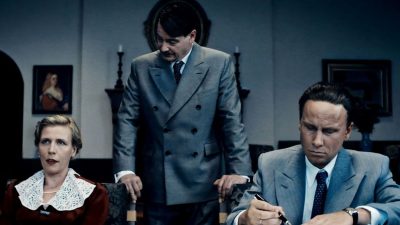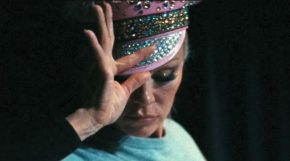Once a child prodigy who toured at the age of ten, Maxim Vengerov returns to the Hungarian concert platform with his students, and Péter Frankl makes chamber music with a cellist fifty years younger than him, István Várdai, in what promise to be two of the most exciting concerts in the Budapest Spring Festival. Does age, or perhaps a difference in age, affect the degree of mastery in chamber music? The short answer is a clear no. For a more detailed explanation, read on.
Whether or not we should seek the virtuosi of tomorrow in the child prodigies of today is of little relevance in terms of the quality of music-making. It is understandable that a talented “young pianist” friend of mine cannot stand it when the word “young” is used as a kind of epitheton ornans, and is thus linked to his name to make it more sellable. And agree we must, for though we are no longer always captivated by Youtube videos of children a few years old playing Chopin, the essence lies elsewhere.
I’ve often asked world-famous artists how they are able to create rapport with colleagues whom they have never met before, who speak a different mother tongue, studied in different schools, and with whom they only have a few rehearsals. The most common answer is that the language of music is universal, and fortunately, they speak it well.
That may be why violinist Maxim Vengerov, in an interview before his appearance in Budapest four years ago, referred to Mstislav Rostropovich as his musical father, who, though they shared a mother tongue, “taught not with words, or instructions, but through his sheer presence”. If he can, Vengerov also performs with his students, and the next such concert is on 3 April in the Ceremonial Hall of the Pesti Vigadó. Among those mentored by Vengerov, who teaches at the Menuhin Academy and the Royal Academy of Music, we find the Ulucan brothers and Richárd Rózsa, the Hungarian cellist who already played chamber music with Vengerov in 2016 in a concert in Istanbul.

Maxim Vengerov, photo by Benjamin Ealov
Age and nationality are no barrier to musical dialogue, and many examples could be given, not just of masters and pupils, for even Sviatoslav Richter was not shy of playing four hands with Zoltán Kocsis, who was much younger, in his twenties, not long after Kocsis was asked by Richter to take Maurizio Pollini’s place at the Soviet pianist’s festival in Tours. The only thing that counts in such cases is professionalism, which is definitive, and independent of age.
Neither then, should we be surprised that the 82-year-old Péter Frankl is able to make such an enchanting duo with the 32-year-old István Várdai. János Malina’s review of their Beethoven concert in 2015 spoke of an “artistic wonder without peer”, and on 21 April they can once more be heard in the Liszt Academy: this time they have selected Schubert’s Arpeggione Sonata and other rarely heard works from the cello and piano repertoire. We recommend them to everyone, regardless of sex, nationality, or age.

Péter Frankl and István Várdai, photo by Gábor Kasza
Author: Endre Tóth
This article first appeared in BSF Magazine, published by Budapest Spring Festival. To view the magazine in full, please click here.



























Comments